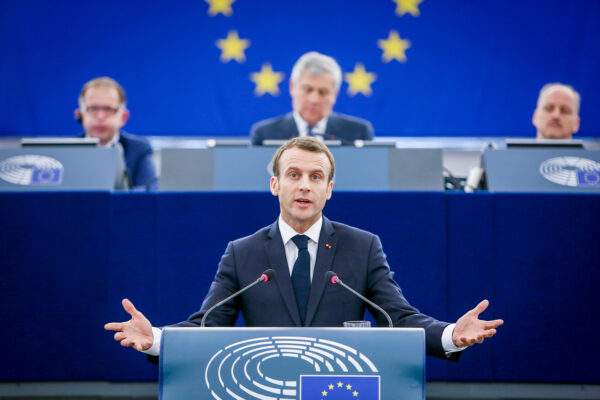
Politico has a good story about how France’s Emmanuel Macron and Italy’s Matteo Salvini represent opposite sides in what I — per Andrew Sullivan — call Europe’s blue-red culture war.
Macron is a former investment banker who styles himself as a liberal champion of the European Union. Salvini, the leader of Italy’s far-right League party, has emerged as Europe’s leading nationalist — one who has pledged to bring the European project to a crashing halt.
Both are building transnational coalitions to contest the 2019 European Parliament elections.
Avatars
Macron is the hope of “blue” Europe: cosmopolitan, college-educated, mostly urban voters. His 2017 election victory against Marine Le Pen — Salvini’s French ally — was hailed as a vindication of liberalism and European integration.
Salvini, whose party is now the largest on the Italian right, represents the inward-looking Europe of the small towns and countryside. This “red” Europe is wary of immigration and sympathetic to autocrats like Russia’s Vladimir Putin.
New axis
The blue-red divide is supplanting the left-right axis in European politics.
Macronist parties, like the Citizens in Spain, draw support from the center-left as well as center-right.
The most successful of Salvini’s allies — Viktor Orbán in Hungary and Jarosław Kaczyński’s Law and Justice party in Poland — have both absorbed the traditional center-right and converted former social democratic voters to their cause.
Long-running struggle
Michael Cotey Morgan has argued in The American Interest that this conflict — between Europhiles and Euroskeptics, between the political mainstream and populists — isn’t new but rather the latest chapter in the continent’s long-running struggle between Enlightenment universalism and Romantic nationalism:
The European Union’s proponents may believe that they — and the partisans of the Enlightenment — won this fight long ago. Yet the conflict between [Immanuel] Kant and [Johann Gottlieb] Fichte, [Adam] Smith and [Jean-Jacques] Rousseau continues to rage.
We’re debating different policies, but the underlying tension — between liberty and community, between opportunity and equality, between city and country — hasn’t changed.
